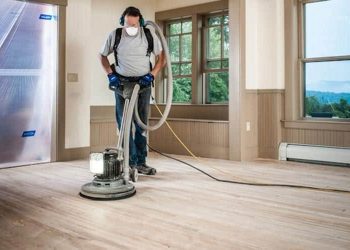We’ve all been there.
You’re in the waiting area for your appointment with the doctor and you’re wondering what’s wrong with you.
Perhaps you’re working at your desk but you can’t seem to concentrate your mind.
We all have experienced the feeling of being tired and unable to focus throughout the day.
It is usually caused by lack of sleep.
There are many factors that can trigger this issue, including eating disorders, stress or even hormonal imbalances.
Read on to find out how you can enhance your sleep and improve sleep quality.
Which is the best night’s sleep quality?
If you search for research regarding sleep, you’ll discover a variety of terms. For instance, there are sleeping latency (sleep time), total time to sleep and efficiency of sleep. They all refer to sleep parameters one of which we need to be aware of is sleep quality.
What is the definition of quality sleep? In a way it differs from other sleep-related parameters since the term is subjective. concept.
Quality of sleep refers to the quality of your sleep.
If you believe you got an excellent night’s sleep, it means that the quality of your sleep is good. However, if you’re exhausted in the morning or have a rough night’s rest, you’re likely going to conclude that your the quality of your sleep isn’t good.
In addition to the amount of time you rest in the evenings, the quality of your sleep is a subjective indicator of how well you’re sleeping. In reality, sleep quality can have a huge impact on your health as well as your performance during the entire day.
It is possible to determine the quality of sleep?
What is the best way to measure the quality of sleep?
There are many methods to gauge the quality of your sleep. In one instance, for example, you could keep a sleep journal.
A journal or a sleep diary can be used to keep track of your sleeping patterns. It’s a straightforward method to measure the quality of your sleep by recording when you go to bed then wake up and how refreshed you feel when you wake up in the morning.
It is possible to do this for a whole week and examine your notes against the previous weeks. The comparison will provide you with an picture of how you’re sleeping.
It’s also possible to do it more objectively with the sleep quality scale that is used by scientists to get an accurate measure.
In these instances you may be required to answer a set of questions during the day. It is best to complete these tests as soon as you get up. They will ask easy questions , such as how relaxed you are and if you have had any sleep-related dreams.
There are numerous scales doctors use to gauge your sleeping. For example, consider the Pittsburgh Sleep Quality Index or the Epworth Sleepiness Scale.
However, if you’re not in taking a standard sleep quality test conducted by an expert in the field but you still have the option of answering these questions each day when you wake up:
How was your night?
Do you feel rejuvenated?
How long did you have in your bed?
Was your sleep interrupted?
What was your dream like?
Did you manage to sleep easily?
Make sure you do it regularly and review your notes to learn more about the quality of your sleep and how it changes with time.
What are the causes of poor quality sleep?
As we have mentioned Poor sleep quality can be described as being tired when you wake up or being unhappy with the quality of sleep you receive each night. What is the reason for this?
It could be caused by an illness like sleep apnea or insomnia. It can possibly be because of lifestyle factors such as stress or having an unbalanced sleeping routine.
The reason for your unrestful sleep may be:
Stress
When we are stressed out our bodies produce adrenaline, cortisol and other chemical compounds.
It doesn’t matter whether it’s stress at work or of another type of stress. They all affect the way the human brain functions and keep us awake. an unintentional sleep disruptor. Stress is a factor that can play behind the scenes even when you don’t feel stressed.
Anxiety
Stressing about your finances, health work, or any other issue could keep you awake at night and induce nightmares. It’s the most common reason for sleep problems.
Depression
If you’re suffering from depression the thoughts you have can be dim and moody and the brain’s chemical shifts. In certain instances depression and other mental health issues trigger sleepiness. In some people this can lead to sleepiness.
Caffeine and addiction to substances
There’s nothing more harmful than a caffeine consumption if you’re looking to get more sleep. It’s a stimulant that creates a feeling of being alive and alert. However, it may also cause anxiety as well as depressed and angry.
It could affect your sleep when you consume beverages that contain a lot of caffeine prior to the time of bed. Other stimulants have the same effect and it is possible to experience insomnia as you go through the withdrawal process of recreational drug use.
Dietary elements
Certain foods may cause issues when you sleep if you consume prior to going to bed. A full stomach could also cause gut health issues and affect the quality of your sleep.
Alcohol
Alcohol is used by some people to relax, however excessive alcohol consumption can cause changes in the sleep pattern. It’s the reason you don’t feel rested and refreshed when you wake up after having excessive amounts of alcohol.
Exercise that is strenuous
Doing some exercise before bed will help you fall asleep and fall asleep. However, intense exercise can increase the levels of adrenaline and cortisol and can cause poor quality sleep.
Medicines
Certain medications can trigger insomnia. For instance, it can occur with decongestants, Parkinson’s medication as well as corticosteroids.
Environment
It is possible that your sleeping patterns are dependent on the temperature in your room or during certain times of year. The condition of your bedding could affect your sleeping.
Health
A chronic health issue can affect the quality of sleep, particularly if it causes persistent pain or worry.
If you’ve figured out the primary factors, you’ll be able to see that you have the ability to make modifications to eliminate them completely. Being aware of your sleep can help you attain what is known as good sleep hygiene.
It is likely that you have heard the phrase between seven and eight hours rest is the norm for many of us at night. But, the burden of sleep and quality of sleep go far beyond the amount of sleep. In order to improve your sleepquality, you must be aware of the causes of poor quality sleep as described previously.
Here are some tips for a good night’s sleep and sleep hygiene tips:
1.) Beware of naps that are too long
Be cautious with your nap duration and naps. If you’re exhausted in the course of the day, it’s okay to nap, but keep it for 30 mins or less.
2.) Be mindful of your dietary habits
Avoid drinking alcohol, caffeine and nicotine prior to bed. Maintain a healthy lifestyle and avoid eating large meals prior to the time of bed. Avoid the consumption of fatty meals at night particularly if you suffer from an irritable digestive system.
3) Temperature of the body
Take a play with your body’s temperature. Have a bath or shower prior to going to bed to trigger a sleepiness response in your body when your body temperature drops.
4.) Make yourself comfortable
Be sure the blankets, pillows and mattress are both comfortable and are at the correct temperature. A high-quality mattress can aid in sleeping better.
5) Exercise
You should exercise at least once a day. Try to get 30 minutes of exercise.
6) Make an exercise routine
Adopt a regular sleeping schedule, even on weekends. Get up and sleep at the same time every day. Remember that it could take some time before you notice a change in your body’s circadian rhythm.
7) Morning light in the morning
The sun’s rays and daylight are the most important thing you notice early in the morning.
8.) Morning exercise
The morning workout can aid in activating your body more efficiently and lessen the need for sleep.
9.) Do not screen prior to going to bed
Try to reduce the amount of time you are watching screens and other gadgets.
10) Relaxation techniques
You may want to consider practicing yoga or meditation. These can be calming and can improve sleep.
Try different methods of relaxation, for example breathing exercises or body scan exercises. Make an effort to achieve total muscle relaxation when you attempt these techniques.
11) Natural remedies
Relax by taking natural remedies or herbal supplements. For instance, you could take melatonin supplements as capsules or in lavender tablets.
It is also possible to explore lavender essential oils as well as other aromas that are pleasant to calm your mind.
12) Limit the amount of noise
Utilize earplugs, or relax with soothing music or white noise using headphones or a device in case your bedroom isn’t totally peaceful.
13) Sleep masks are a must.
It is possible to put on sleeping masks in case your bedroom isn’t completely dark, or you are awakened by the light of night. It is recommended to buy curtains that block out light.
What can you tell whether your sleeping performance is getting better? If you’re getting better sleep and feeling more active. Also, you’ll have more energy throughout the day.
How can you improve poor quality of sleep?
In certain cases it is possible that poor sleep quality can lead to a basic sleep disorder that you must resolve. For instance, insomnia or sleep apnea.
What do be done if struggling with insomnia?
You can experiment with methods of relaxation, such as breathing exercises or meditation.
It is possible to try natural sleep aids like valerian, chamomile, and lemon balm.
If you are unable to sleep after 20-30 minutes, you should leave your mattress and do something relaxing like reading a book or some light cleaning of your kitchen’s surfaces. You can then try sleeping again.
It is possible to visit your doctor for medical advice and then get prescription medication. Use them with caution and according to the directions.
What should you do when suffer from insomnia?
Sleep apnea refers to a condition in which you experience the breathing slow down in the night. The airway begins to collapse. The body stops breathing, and you could awake several times each evening.
There could be anatomical issues which causes sleep apnea. the majority of patients experience relief with these techniques:
Maintain your weight at a healthy level.
You could try an CPAP machine to help you sleep
It is possible to try sleeping using a nasal strip as well as a mouthpiece.
Find a sleep apnea pillows. Some pillows accommodate the CPAP machine and can make your life more enjoyable.
Do not hesitate to see your physician or sleep physician for medical advice.
The Complete Guide to Vietnam Nightlife Across Major Cities
The transformation that occurs across Vietnam when the sun sets reveals a captivating dimension of this Southeast Asian nation that...










